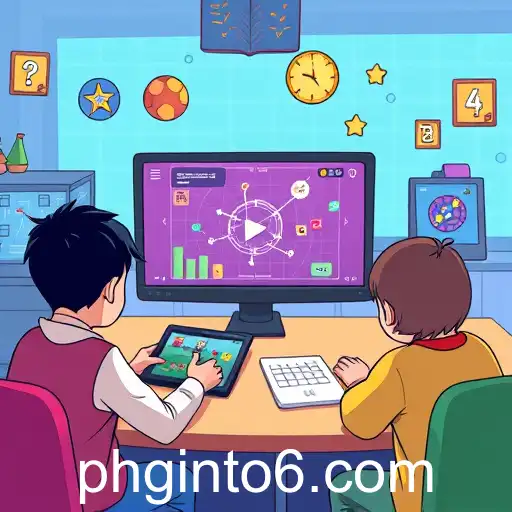
In recent years, the intersection of online gaming and education has burgeoned into a dynamic area of innovation and debate. At the heart of this conversation is Phginto, an influential English game website known for its diverse range of educational games aimed at students of varying ages.
As 2025 unfolds, educational institutions worldwide are increasingly integrating online gaming into their curricula. Platforms like Phginto have capitalized on this trend by offering games that enhance cognitive skills, problem-solving abilities, and critical thinking in students. This shift is in part a response to the growing body of research supporting game-based learning, which suggests that interactive digital environments can significantly enhance student engagement and retention of knowledge.
Phginto, with its user-friendly interface and broad repertoire of educational content, stands out as a leader in this niche market. Schools are leveraging these resources not only in classrooms but also as part of extracurricular programs that aim to prepare students for a digital-first world. This has created a new dynamic in the education sector, where traditional teaching methods are being reinvented to include the benefits of technology-driven learning tools.
Moreover, the role of online gaming extends beyond student education. Teachers are also finding value in platforms like Phginto as a professional development resource. By engaging with these games, educators can better understand game-based learning strategies and implement them more effectively in their teaching. This creates a feedback loop—educators evolve their methods while providing developers with insights to improve game design.
However, these trends do not come without concerns. Critics argue that the integration of gaming in education can lead to diminished interpersonal skills and overdependence on technology. Proponents counter these claims by emphasizing the need for balanced approaches where traditional methods complement game-based learning.
As we look toward the future, the potential for online gaming platforms, such as Phginto, in shaping educational outcomes is immense. With the continued convergence of technology and education, further innovations in this field are inevitable, promising to redefine how we think about learning in the digital age.


